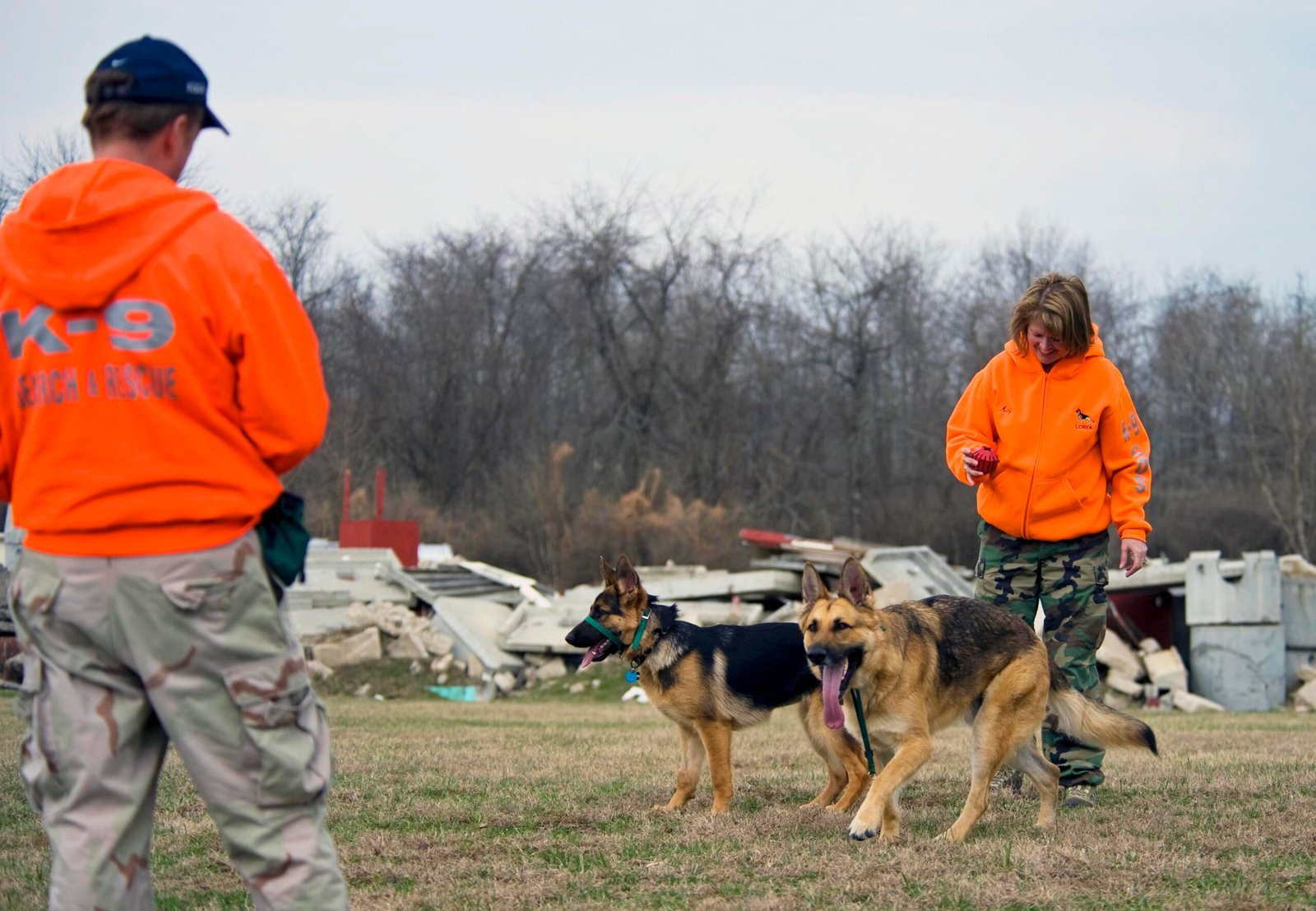Dogs used for search and rescue are renowned for their bravery, attention to detail, and keen sense of smell. They employ these abilities to sift through earthquake debris or locate lost hikers in dense woodlands. These four-legged heroes are these dogs. But according to recent research, even these well-trained dogs can become confused by something unexpected: frustration.
Researchers at Virginia Tech have found that search and rescue (SAR) dogs’ performance might be impacted by emotional stress brought on by impatience. These canines’ search times lengthen, their accuracy decreases, and their stress levels rise when handlers ignore them before a job or deny them expected incentives.
The Science Behind the Study
The study, published in Frontiers in Veterinary Science, was led by Sally Dickinson, a Ph.D. student in Virginia Tech’s School of Animal Sciences. But Dickinson isn’t your typical researcher—she’s also a career firefighter, paramedic, and a seasoned SAR dog handler with over 20 years of experience.
“Throughout my career, I’ve faced situations where a working dog just didn’t perform as expected,” she said. “I started to wonder if there was something deeper going on—something science could help explain.”
To find out, Dickinson designed a study with 12 trained SAR dogs and their handlers. The dogs participated in three different activities:
- A calm rest session before a search
- A “frustration session”, where a toy was teased and withheld, and the handler ignored the dog
- A moderate exercise session before a search
All dogs wore collars that tracked their heart rate and heart rate variability, two key indicators of stress and recovery. Additionally, the researchers tested each dog’s accuracy and speed in locating a target scent.
Frustration vs. Exercise
Dogs made more mistakes and took much longer to finish their searches after the session. Their elevated heart rates were a blatant indication of stress and weakened resistance.
In contrast, after moderate physical activity, the dogs’ heart rates went up as expected, but their performance remained steady. They were still sharp, focused, and accurate. This finding suggests that physical exertion doesn’t impair search effectiveness—but frustration does.
“We often use frustration in training to build drive,” Dickinson explained. “But our research shows it might actually do more harm than good, especially when every second matters in real-world missions.”
Why This Matters for Working Dogs

Many SAR teams still use training methods that involve withholding toys or praise to build perseverance. This new research calls those methods into question.
Dr. Erica Feuerbacher, Dickinson’s advisor and co-author of the study, says the findings have implications far beyond search and rescue work.
“Sally brings real-world insight into her research,” Feuerbacher said. “These results could benefit all kinds of working dogs—from police K9s to service dogs to scent detection dogs. We need to train them in ways that are not just effective, but ethical and supportive of their well-being.”
A Call for Compassionate Training

Dickinson believes her research will encourage handlers to shift from frustration-based approaches to stress management and positive reinforcement. She emphasizes that working dogs don’t choose their careers, and it’s up to us to make sure they’re treated with care.
“These dogs give us everything they have,” she said. “They deserve training that keeps them healthy, happy, and ready to do what they do best—save lives.”
The study is an important step toward better understanding how emotional states affect performance in working dogs. And for SAR teams, the takeaway is clear: a calmer, more supported dog is a more effective teammate.






